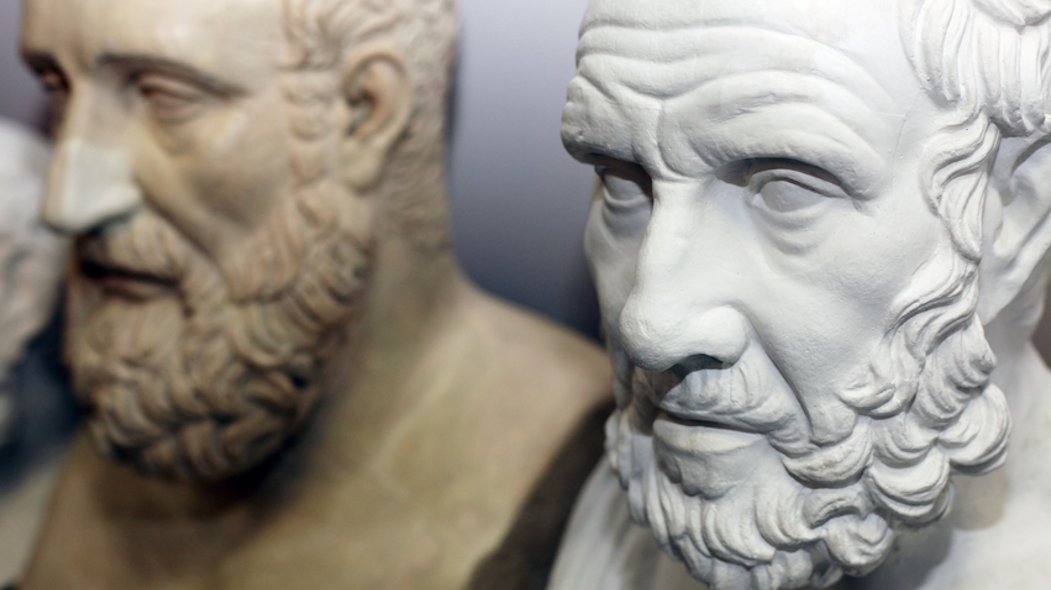Older European languages and cultures
This field of study is primarily dedicated to ancient Greek and Latin language, literature, rhetoric, historiography and philosophy. Modern Greek philology also belongs to this area.

Overview of the academic discipline
The language and literature of Greek and Roman antiquity are a central foundation of our culture and are researched in this field of study. In addition to linguistics, important subsidiary subjects of Classical Philology are Ancient History, Classical Archaeology, Classical Studies, Art History, Philosophy and Religious Studies. Closely related to Classical Philology is the subject of Medieval Latin Philology, which deals with the Latin language and literature of the European Middle Ages. Celtic Studies is the study of the language and literature of the Celtic peoples.
Which topics are included in the curriculum?
In subjects such as Latin studies/Latin, classical philology, Greek philology and Greek studies, the focus is on reading the most important ancient authors in the original texts. Subject-specific and methodological skills are gradually expanded. Linguistic, literary and ancient studies modules serve this purpose. The programme builds on the language skills acquired at grammar school. The core content and methods of the subject are taught in basic modules. These include translation, grammar and style exercises, knowledge of the culture of antiquity and the acquisition of academic working methods and literary theory concepts/approaches.
The Neo-Greek Studies programme covers the literature, language and regional studies of Modern Greece (from the beginning of the 19th century).
Pedagogical and didactic modules are added as part of the teacher training programme. Trips/excursions to the countries and landscapes of ancient civilisation serve to deepen knowledge of the region.
What are the requirements?
If you would like to study in this field, it is helpful if you have knowledge of these school subjects: Greek, Latin, history, German and English.
Knowledge of French and Italian is often also expected for reading secondary literature. Due to the close interrelationship between Latin and Greek literature and intellectual history, students must generally also provide proof of knowledge of the other language or acquire it during their studies (Graecum or Latinum).
What study programmes are there to choose from?
The degree programmes in this area are mainly offered at traditional universities. In Classical Philology, students usually choose between the specialisations Ancient Greek/Greek Studies or Latin/Latin Studies. Celtic Studies programmes can also be studied at both undergraduate and postgraduate level. Modern Greek Studies (Modern Greek Philology) is offered at Bachelor's and Master's level.
What job opportunities are there after graduation?
Classical philologists work primarily in the teaching profession. Other fields of activity include universities, museums of antiquity, special research institutions, libraries, textbook publishers and other media sectors as well as, in exceptional cases, tourism (guided tours).
